‘Best of’ IWC
Webinar Series
The Best of IWC Webinar Series highlights exceptional technical papers that presented at the previous year’s International Water Conference®. Preview the high-quality technical content by registering below.

Attendees can earn 1 pdh credit
Virtual Webinars are FREE to attend, but registration is required to attend and for pdh certification.
Past Webinars
When: June, 2025
Topic: Wastewater 2: Bubbles, Biofilm, and BOD: Wastewater Solutions for Industry
IWC 24-70: Drivers for Residual COD Removal at Industrial Water Resource Recovery Facilities (WRRFs)
William Celenza, Burns & McDonnell, Chicago, IL
Influent wastewater BOD:COD ratio is measured for predicting biotreatability; however, treated effluent BOD:COD ratios have not typically been used as a treatment benchmark. The merging of wastewater reuse requirements and stringent discharge criteria in some states and countries such as China have already required COD values as low as 3 times BOD values. This discussion will present residual COD removal scenarios at industrial facilities and present case study schemes to achieve increased COD removal efficiencies.
IWC 24-72: Advanced Fouling Control for Once-Through Systems Including Innovative Solutions for Monitoring, Treatment, and Optimization
Nora Eibergen, Nalco Water, an Ecolab Company, Naperville, IL
Once-through cooling water systems present unique challenges to successful water treatment. This presentation showcases how innovations in chemistry, automated monitoring and control, and a novel deposit sensing technology were implemented at a coal-fired power plant to heal the cooling lake, improve operational performance, and reduce chemistry usage by 25%.
Topic: Next-Gen Water Treatment: Unlocking Lithium’s Full Potential
January, 2025
IWC 24-13: Lithium extraction and purification schemes from brine streams – The key role of lithium nanofiltration technology
Denise Haukkala, DuPont Water Solutions, Salt Lake City, UT
Global decarbonization and electrification efforts necessitate accelerated and sustainable lithium production. Direct lithium extraction is a continuous sorbent- and membrane-based technology enabling sustainable and fast production. We will discuss multi-technology system design for key brine chemistries and project context. Further, the role of lithium nanofiltration will be presented emphasizing composition and operating parameters impact on Lithium yield and selectivity along with long-term in-field performance of a product commercialized by the DuPont Water Solutions.
IWC 24-15: Water Issues in Lithium Battery Production
Thomas E. Higgins, Ph.D., P.E., Worley Group, St Augustine, FL; Mary McLoud, Worley Group, Ft. Lauderdale, FL; Avijit Dey, Group, Houston, TX
Energy transition from fossil fuels will require 240 terawatt-hour (TWh) of batteries. Cathode active materials (CAM) are the major material cost. Nickel, manganese and cobalt (NMC batteries) are reacted with oxygen and sulfuric acid to produce metal sulfates, then mixed with sodium hydroxide and ammonia forming metal hydroxides, mixed with lithium hydroxide and heated to produce CAM, producing a wastewater containing sodium sulfate and ammonia. This wastewater can be evaporated (high energy usage and CAPEX) to remove ammonia and produce a sodium sulfate solid for sale or disposal. A promising alternative is bipolar electrodialysis, which can produce sodium hydroxide and sulfuric acid, both of which are used in CAM production.
Historical Papers
As an offering of the high quality technical content presented at the IWC, please review these historical papers from IWC-past. Technical Papers from more recent conferences, and our archived history, can be found here. Check back often, as content will be updated on a regular basis.
Please click on title to download paper
IWC 95-02: A COMPARISON OF A SELECTIVE RESIN WITH A CONVENTIONAL RESIN FOR NITRATE REMOVAL
G.L. Dimotsis, Sybron Chemicals Inc., Birmingham, NJ and F.X. McGarvey, Sybron Chemicals Inc., Birmingham, NJ
IWC 09-36: Steam Generation Using Produced Water: Lessons Learned
Martin R. Godfrey, Nalco Company, Naperville, Illinois
Keywords: Produced Water, OTSG, Evaporator, Steam Generation, SAGD
Prepared Discussion for IWC 09-36:
Discusser: Melonie Myszczyszyn, CNRL Facilities Engineer, Alberta, Canada
IWC 07-24: Equipment Design Considerations for Lime and Ion Exchange Treatment of Produced Water in Heavy Oil Extraction
Robert Holloway, Holloway Associates, Etobicoke, Ontario, Canada
Gordon Page, Page Technology Ltd., Calgary, Alberta, Canada
Prepared Discussion for IWC 07-24:
John E. Fair, P.Eng., Fair Canada Engineering Ltd., Calgary, Alberta
Author’s Closure for IWC 07-24:
Robert Holloway, Holloway Associates, Etobicoke, Ontario, Canada
Gordon Page, Page Technology Ltd., Calgary, Alberta, Canada


